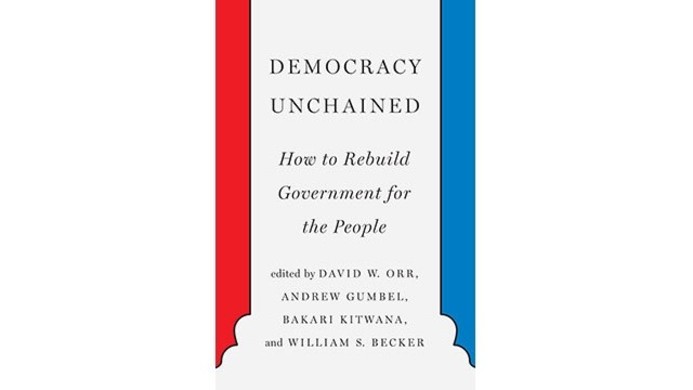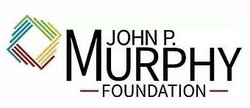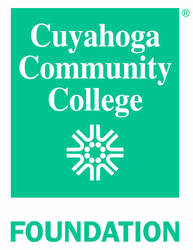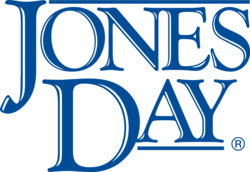Thursday, February 27, 2020
Democracy Unchained: How to Rebuild Government for the People

This month, a new book about what we can all do to keep democracy strong was released by The New Press. Democracy Unchained is a project led by David Orr of Oberlin College, who has also spoken at the City Club a number of times, most recently at our 2019 State of the Great Lakes. There are more than a few City Club speakers who contributed to the book, including Bakari Kitwana, Yascha Mounk, Amy Hanauer, and Jeremi Suri. City Club CEO Dan Moulthrop also contributed a chapter on the role we and similar organizations play in keeping democracy strong. The title of the chapter comes from an oft told story about Benjamin Franklin at the completion of the Constitutional Convention. When asked what form of government the secret proceedings had produced, he replied, “A republic, if you can keep it.”
Keeping the Republic
There is a healthy debate among political scientists about how to save democracies and what to do to strengthen our democratic republic. There’s a strong argument on one side for greater citizen engagement—a deep, deliberative form of democracy in which the means to hold elected officials accountable beyond the ballot box are available to all.
Others see that as unrealistic. For many citizens, especially those in poverty, there is no time. The resources necessary to inform oneself and fully participate are too great a hurdle to overcome. The only recourse is to leave democracy to the professionals or to rely on mini-publics—diverse groups of citizens that can stand in for the entire populace, a kind of focus group for democracy, a republic for the republic.
Political scientists are correct to worry. The idea and ideals of democracy here and abroad are under attack, sometimes willfully and sometimes through negligence, incompetence, or sheer ignorance. Of the strong and influential civil-society organizations that can help save democracies, we tend to see the press as the most important. Even today, after the weakening of legacy print media, editorial board endorsements can alter the outcome of an election, and journalistic investigations into wrongdoing and official malfeasance remain vital to public confidence in the government. But if you’re not a journalist bent on afflicting the comfortable, as the saying goes, what do you do besides vent on Facebook or Twitter?
The answer may be found in the moments in our nation’s history when the citizenry took notice of its collective power and used it. One such moment came at the turn of the twentieth century, when citizens across the country acted with surprising urgency and vigor to create civic institutions and practices that paved the way for reforms at the municipal, state, and national levels. The Progressive Era left us museums and orchestras to feed our minds and souls, settlement houses to meet the needs of the poor, and, perhaps most important to our nation’s needs today, civic organizations that convened citizen-leaders, who coalesced around solutions to the problems facing their communities and the nation.
A handful of these organizations live on today. They are a key to strengthening democratic institutions and practices in this moment of historic stress. Among them are “city clubs.” The oldest of them, the Commonwealth Club of California, was established by San Francisco’s civic leaders in 1903. Cleveland, Ohio’s iteration took form in 1912, and Portland, Oregon’s in 1916. In those heady Progressive Era years, just about every municipality had a cohort of civic leaders interested in reforming government who came together to create a city club, citizens’ league, or similar institution.
These often fulfilled dual purposes—first, to bring people together for the shared examination of vexing issues, and second, to find common cause on what to do about them. To fulfill the second purpose, city clubs would research issues, survey membership, and produce recommendations that often ended up on ballots and in lobbying efforts. This impulse for advocacy continues on the West Coast, where the Portland City Club maintains a volunteer advocacy board, passes and issues resolutions for ballot measures, and empowers members to produce research reports.
The body of research amassed by the Portland club is astonishing in its volume and breadth. Members produced more than one thousand reports over the first century of the club’s life on topics ranging from green-space conservation and water fluoridation to Oregon’s Public Employee Retirement System. The influence of the reports varied, from being barely noticed to inspiring substantive legislative or policy changes to put the city on new paths.
The same impulse for advocacy animated the early years of California’s Commonwealth Club. But although advocacy was often successful, it seems to have fallen off during the Great Depression and World War II. The Commonwealth Club evolved into more of a speakers’ platform and convener of civic dialogue. Importantly though, the club incubated an advocacy project in 2005 that became California Forward, an organization that set out to “articulate a vision for governance reforms to break the partisan gridlock, fortify fiscal management and rebuild the relationship among the state and local governments.” The club reports that its work on these goals has been “infused in decisions at the highest of levels” of state government.
Cleveland’s city club distinguished itself from the outset by steering clear of advocacy. At the time of its founding, other entities—in particular the municipal association, of which many city club members were also members—were vigorous advocates, obviating the need for the city club to fill that role. The club focused on convening and dialogue. From the outset, the city club’s members and speakers gave voice to diverse political views.
Although city clubs were formed all over the country during the Progressive Era, many have not survived. The City Club of St. Louis inspired Cleveland’s iteration, but St. Louis no longer has a club. And while our nation’s oldest and greatest city had one, New York’s city club is not the convener of change agents it once was. Importantly, the Women’s City Club of New York is experiencing a rebirth in this political moment, buoyed by and contributing to the rising power and influence of women in politics.
People only passingly familiar with the legacy of city clubs may disregard their influence and see them as little more than platforms for authors on book tours and professors seeking non-academic audiences. However, the surviving city clubs still generate and distribute meaningful political, cultural, and civic content that gives them influence and provides citizens with an avenue for civic participation.
One example is the role these organizations play during the early phases of presidential primaries. As candidates test the waters and their campaign messages, they often turn to city clubs to connect with voters. What happens is a bit different than the traditional chicken-dinner stop in Iowa or New Hampshire. While the basic ingredients are similar—handshakes, photo ops, stump speeches—the history of civic engagement at a city club gives dialogues with candidates more gravitas. More than that, though, there is the potential for broader impact beyond the venue itself and beyond momentary news coverage. With digital production and public media partnerships, city clubs often turn routine campaign stops into sixty-minute town halls streamed online, released as podcasts, and broadcast to tens of thousands across a given state.
For the candidate, a city club is the reason to come to a state and a community that, given our nation’s quirky electoral math, might not otherwise be of interest. For the community member, it’s a chance to meaningfully participate in our democracy. Citizens find themselves dialoguing with candidates who might be the next president. For the community writ large, there is an opportunity to authentically engage in sixty minutes of content, rather than sixty seconds on the news. Partnerships between city clubs and local media is a crucial part of the equation.
As much as city clubs provide platforms for freedom of speech, they also provide opportunities for exercising the final clause in the First Amendment: petitioning government for the redress of grievances. Tweed Thornton, the former director of the City Club of Chicago, tells the story of a suburban congressman who was renowned for not scheduling public town hall meetings. After a decade without them, he appeared at a city club forum, where his resistance to public engagement with his constituents became a lightening-rod issue—so much so, that he had to outrun the press after the event. There are few other venues in America where this kind of interaction is routine and, thanks to partnerships with public media, reaches tens of thousands of constituents. There are few other opportunities for a citizen to ask a mayor to explain his or her resistance to implementing immigrant-friendly policies in front of eight hundred civic and business leaders and thousands of radio listeners. Or where an elected county prosecutor can be made to fully explain how far he intends to go with bail reform.
Our republic is strengthened by this kind of work by community organizations. At any given moment, city clubs are organizing forums on local and statewide issues, from homelessness and local economic development to education reform and stormwater management in the context of national and state policy. City club audiences might come for the chance to interact with a rock-star presidential candidate or an actual rock star, but they stay for conversations that are important to the fabric of the community. Ordinary citizens and leaders develop a shared vocabulary and shared experiences that become the foundations of civic problem-solving, and that may end up in public policies, legislation, and budgets—in other words, the actual work of the republic serving its constituents.
Diane Douglas ran the Seattle City Club for more than a decade. That club’s founding in 1980 is a reminder that citizens can give birth to these organizations at any time to change the dynamics of democracy. Douglas led the Seattle club to create the Washington State Debate Coalition, which manages public debates for the most important public office races in the city and state.
“There are very few institutions that have the clout to do it,” Douglas said. “It required a trusted non-profit convener—one that has the bandwidth, mission and political clout to be trusted by the media, by the political parties and candidates and by other partners, in our case, colleges and universities across the state. There just aren’t that many civic institutions that can pull that off and have the drive and the mission-based commitment to do that work.” [1]
If we care about democracy, it is incumbent on us to ask what we can do to shore it up. While national initiatives, voter-rights lawsuits, and constitutional amendments may be the work that some organizations take on, city clubs offer places where people from across the community can simply come together to become better informed. By putting ordinary citizens directly in conversation with the leaders who are shaping the future of our communities, states, and nation, these organizations provide some of the most accessible and high-impact opportunities to strengthen our fragile democracy.
Copyright © 2020 by David W. Orr. This excerpt originally appeared in Democracy Unchained: How to Rebuild Government for the People, published by The New Press and reprinted here with permission.
[1] Interview with the author.





